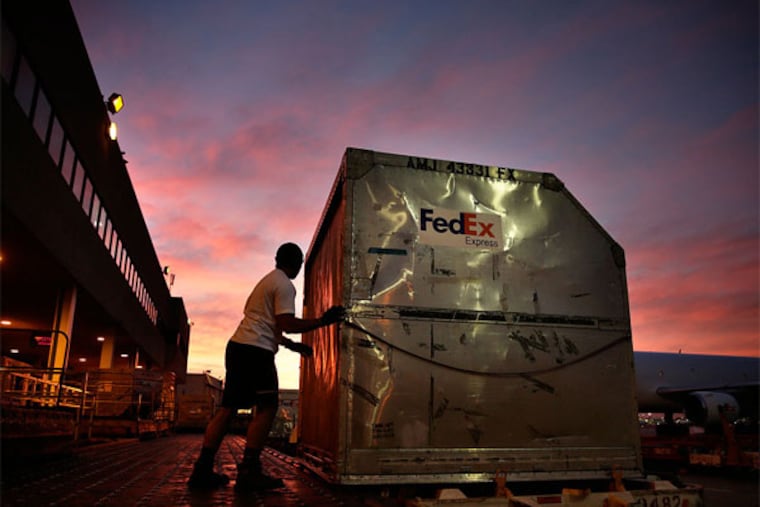It's Personal: Shipping firms hard-pressed to meet holiday demands
It was inevitable, with online retailers promising the kind of speedy delivery unimaginable a few years ago, that the mind-boggling mechanics behind it all would eventually go haywire.

It was inevitable, with online retailers promising the kind of speedy delivery unimaginable a few years ago, that the mind-boggling mechanics behind it all would eventually go haywire.
Especially around Christmas, as some people found out the hard way.
On Thursday, the butler-like service of the Internet economy, which shoots packages to people's homes with staggering reliability, became a target of customer consternation after parcels failed to land, as promised, by Christmas Eve.
United Parcel Service apologized Thursday for delays nationwide that left last-minute gift-givers empty-handed on Christmas. The shipping goliath scrambled to deliver, by day's end, all of the boxes its software systems and army-size workforce had failed to transport in time.
FedEx also experienced service disruptions that the company, in a statement, characterized as "minimal."
UPS, which hired 55,000 extra seasonal workers to handle the planned crush of domestic holiday deliveries, said an unexpectedly large number of last-minute orders was partly to blame. Such orders are transported by air to satisfy one- and two-day delivery promises, spokesman Tyre Sperling said.
"It exceeded the capacity of our [air transport] network," Sperling said from UPS's Georgia headquarters. "The demand was, ultimately, higher than we had forecast leading up to Christmas."
UPS knew it had a problem days before Christmas, but "we were trying to clean the system out," he said. "We had even some folks from management be dispatched across the country to assist."
"Again, the capacity was greater than we had forecast," Sperling said.
On Christmas, UPS called in workers to sort packages stuck at its air hub in Louisville, Ky. - too little too late for gift-givers who thought they had dodged the procrastinator's bullet. Customers were urged to call 800-PICK-UPS (800-742-5877) to see whether their orders qualified for refunds.
How could this have happened?
Well, for one thing, the heroics of doorstep delivery depend on enormous precision. And this holiday shopping season brought some surprises.
Retailers pushed the envelope more than ever with offers of superfast delivery just days before Christmas. Plus, there were only 25 days between Black Friday and Christmas, giving Internet shopping even greater appeal for time-crushed customers.
Consider Amazon.com. On Thursday, the online-only retailer announced that more than one million customers around the world became members of Amazon Prime in the third week of December. Prime members receive free two-day delivery on qualifying goods in return for paying a fixed annual membership fee.
Store-based retailers, though, also offered quick turnarounds on last-minute delivery.
"I have heard from numerous friends that operate e-commerce businesses that demand exceeded forecast, and many have had to send white-collar executives and management teams to join the folks in their warehouses in picking, packing, and shipping packages," said Michael Golden, who helped found Amazon competitor ShopRunner in Conshohocken and is a member of the board of another local enterprise, online retailer Pet360.com.
"I think the online retailers had contingency plans to get everything out of their warehouses on time; the carriers [did] not," Golden said in an e-mail.
Pet360.com chief financial officer Joe Falkenstein said the e-retailer experienced only a few problems with bad weather in Texas, causing a few orders to make it there late.
(Bad weather in the Dallas-Fort Worth area was among the reasons cited by UPS for its own delays.)
"No real problems for us, thankfully," Falkenstein said in an e-mail.
FedEx allowed some customers to pick up packages Christmas at local FedEx Express centers, and the company was "contacting affected customers," spokesman Scott Fiedler told the Associated Press.
UPS entered the season sounding confident. It would ship, by air, orders received as late as Monday, it announced several weeks ago.
But with residential deliveries up 40 percent over the last six years, even UPS, with an in-house technology apparatus so sophisticated it partly considers itself an engineering firm, displayed cracks in its own mighty mainframe.